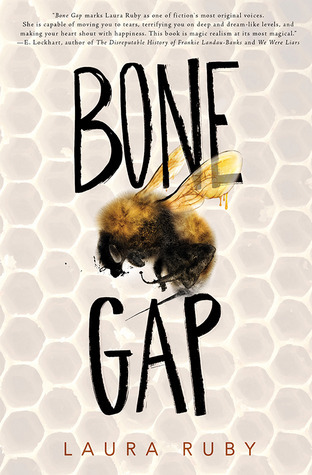TL;DR
In "Bone Gap" by Laura Ruby, the story unfolds in a small town where Finn, the only witness to a young woman's abduction, struggles against skepticism and must confront themes of love, loss, and identity in a mystical narrative.
What is Bone Gap about
"Bone Gap" tells the story of Finn O'Sullivan, an 18-year-old who becomes embroiled in the mysterious disappearance of Roza, a beautiful Polish woman who seemingly vanishes from their small town. The narrative explores Finn's internal struggle as he knows Roza was kidnapped, yet he cannot recall the face of her captor, leading the townsfolk to doubt his account. The book intricately weaves the experiences of Finn, Roza, and the residents of Bone Gap, delving into their pasts filled with regret and their futures clouded by uncertainty. With a backdrop of magical realism, Laura Ruby captures the complexities of relationships, self-identity, and the nature of belief in an engaging coming-of-age tale.
Bone Gap 6 Key Takeaways
The Disappearance of Roza
Roza, a beloved figure in Bone Gap, mysteriously disappears, prompting Finn to believe that she has been kidnapped rather than having left of her own volition.
Finn's Isolation
Finn struggles with isolation and guilt, feeling responsible for Roza's disappearance, as the townspeople dismiss his claims and question his reliability.
The Search for Truth
As Finn searches for answers, he must confront his feelings of inadequacy and the skepticism from those around him, complicating his quest to rescue Roza.
Roza's Experience
The narrative shifts to Roza's perspective, revealing her captivity and her inner strength as she navigates the horrors of her situation.
Confrontation and Resolution
The climax sees Finn facing his own fears and the truth about himself, leading to a confrontation that ultimately seeks to rescue Roza and heal their wounds.
Themes of Identity and Belonging
Throughout the tale, characters grapple with their identities and the concept of belonging, ultimately leading to a sense of acceptance and understanding.
Top Bone Gap Quotes
- "In Bone Gap, there are gaps everywhere, places where people slip through and disappear, leaving only echoes behind."
- "The world is not just what we see; it’s also what we choose to believe."
- "Sometimes, the hardest part of believing is waiting for the truth to reveal itself."
Who should read Bone Gap?
"Bone Gap" is ideal for young adult readers who appreciate stories that blend realism with elements of magic and mystery. It offers profound insights into identity, love, and the complexities of human relationships, making it a compelling read for anyone navigating their own journey of self-discovery.
Bone Gap Best Reviews
- "Bone Gap is a beautifully written tale that intertwines love, loss, and the nuances of identity with a touch of magical realism." - The New York Times
- "Laura Ruby crafts a haunting narrative that lingers long after the last page is turned, inviting readers to ponder the nature of truth and perception." - School Library Journal.
People also liked these summaries
Bone Gap FAQs
What is the recommended age for reading Bone Gap?
Bone Gap is recommended for readers aged 16 and up, as it tackles complex themes of love, loss, and identity that resonate with older teens.
What are the main themes in Bone Gap?
The central themes include the exploration of identity, the nature of belief, and the interplay of love and loss within a magical realism framework.
How does Finn's character evolve throughout the story?
Finn evolves from a troubled, guilt-ridden young man into someone who learns to confront his fears and accept himself, ultimately discovering his own strength.
